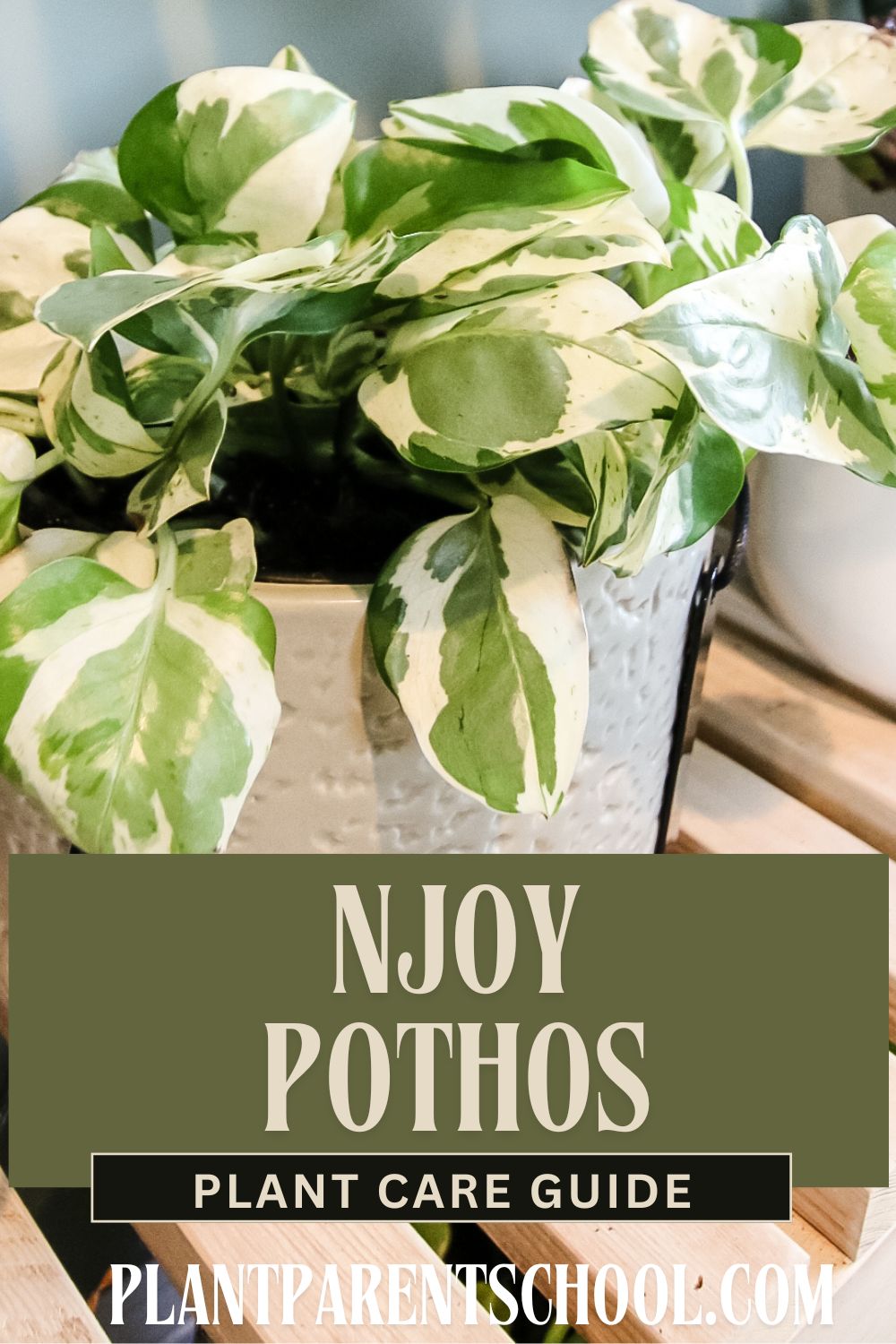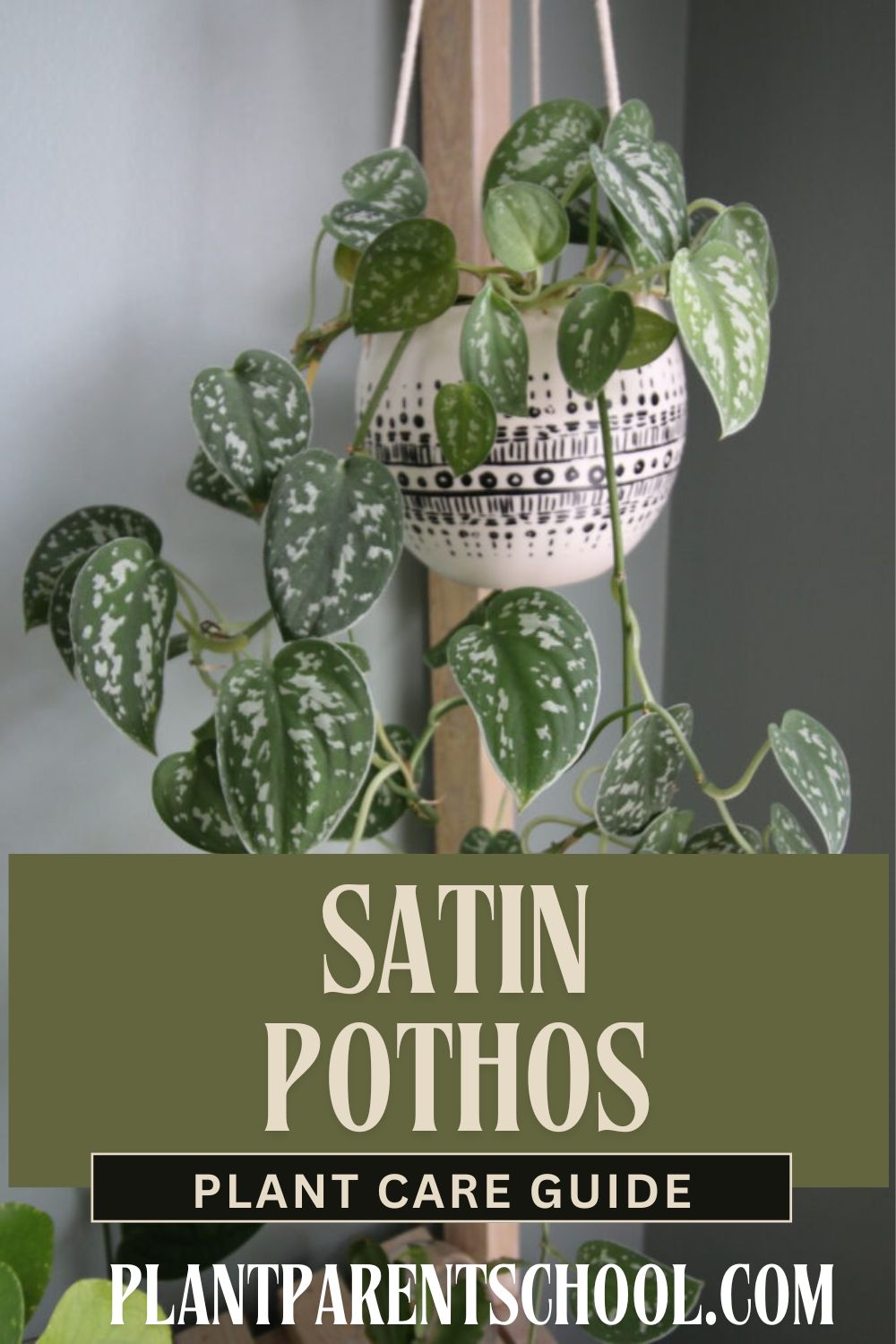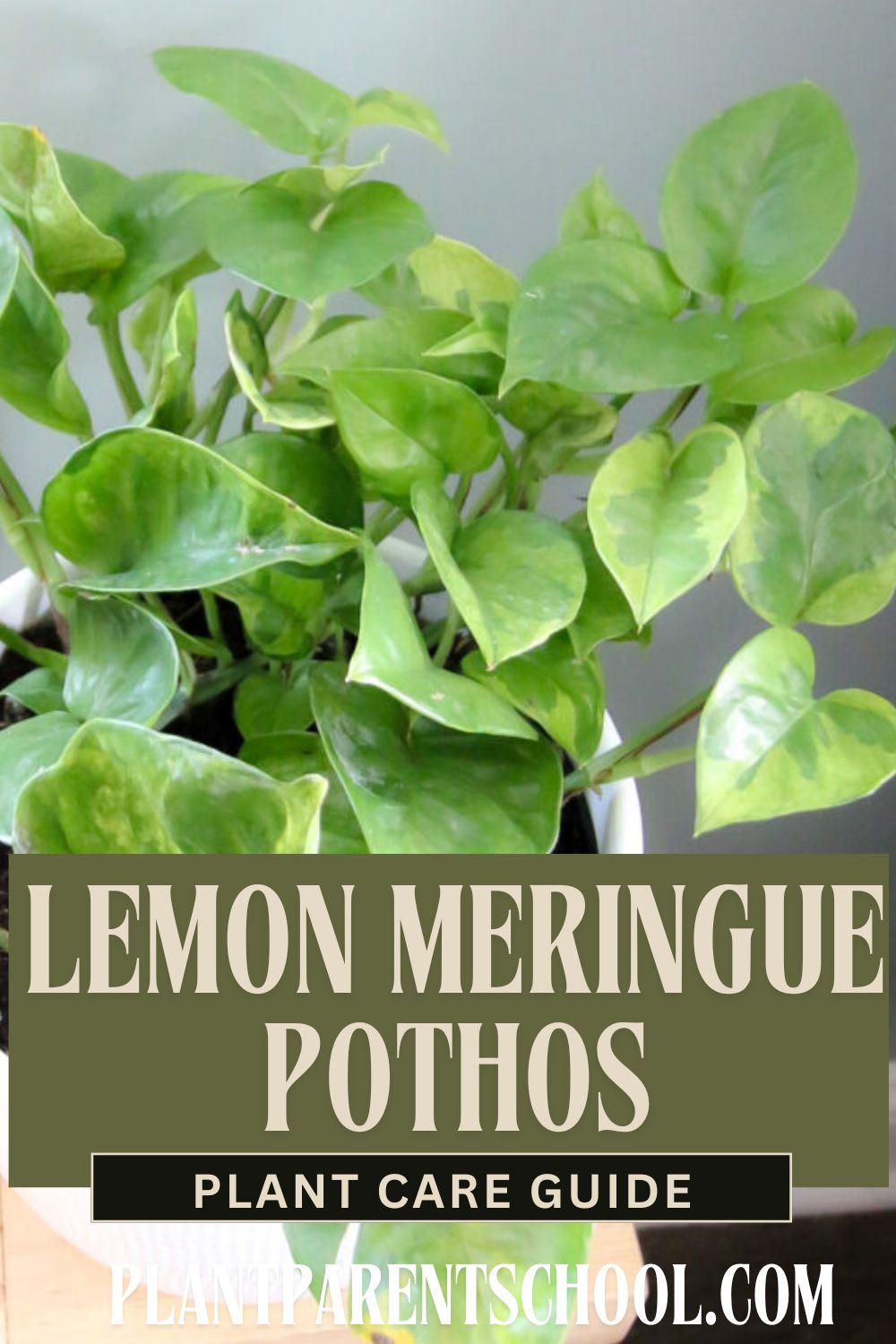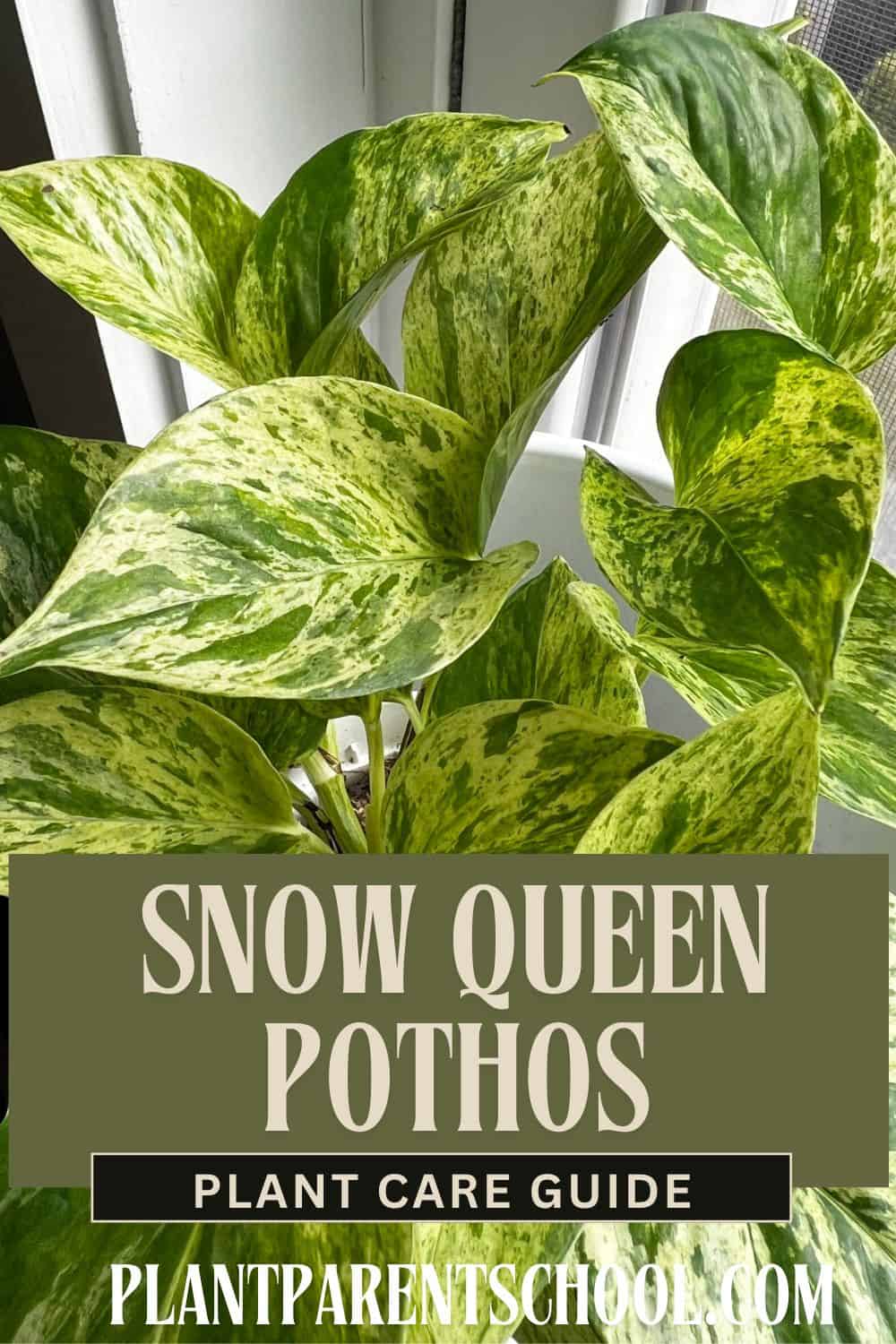Pothos are popular, easy-to-care-for houseplants known for their trailing vines and attractive foliage.
This pothos care guide will help you keep your plant thriving and healthy.
Quick Look
- 🌞 Lighting needs: Indirect light
- 💧 Watering needs: Moderate
- 📏 Mature Height: Up to 10 feet (trailing)
- 🌱 How to propagate: Stem cuttings
- 🚫 Toxic/non-toxic: Toxic to pets
- 🌸 Flowering: Rarely indoors
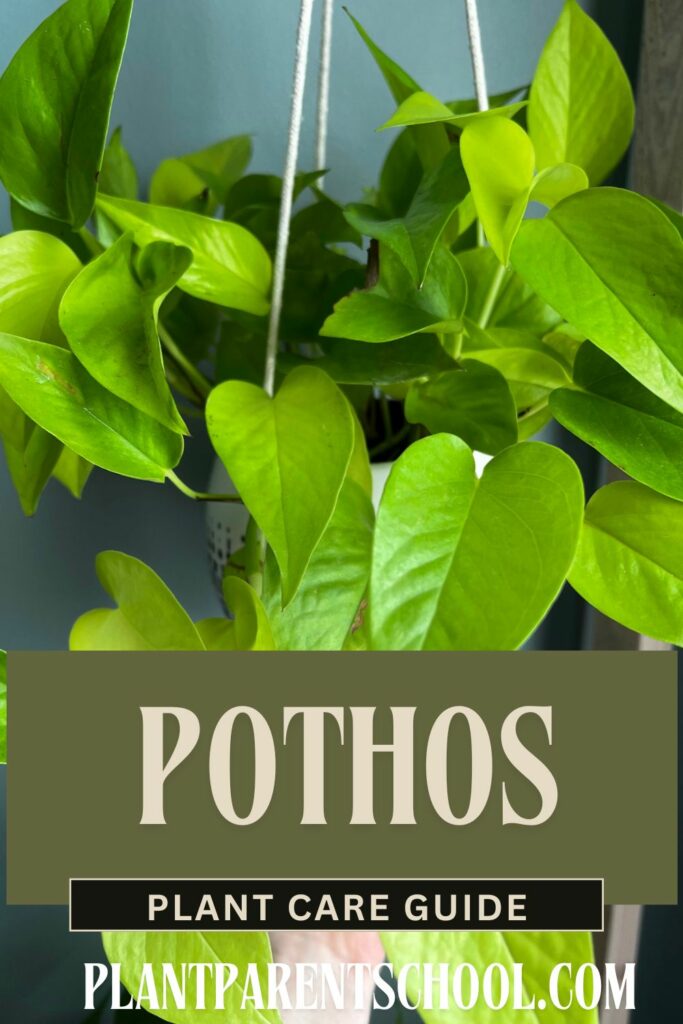
Introduction
Pothos (Epipremnum aureum) are beloved for their hardiness and adaptability, making them a favorite among both novice and experienced plant enthusiasts.
Known for their attractive, heart-shaped leaves and trailing growth habit, pothos can thrive in a variety of indoor environments.
Types of Pothos
There are several varieties of pothos, each with unique leaf patterns and colors.
Some popular types include:
- Golden Pothos: Green leaves with yellow variegation.
- Marble Queen Pothos: Creamy white and green marbled leaves.
- Neon Pothos: Bright, lime-green leaves.
- Jade Pothos: Solid green leaves.
- Snow Queen Pothos: Creamy white and green marbled leaves.
Lighting
Pothos prefer bright, indirect light but can tolerate low light conditions.
Avoid direct sunlight, which can scorch the leaves.
In lower light, their growth may slow, and variegated types may revert to solid green.
Watering
Water your pothos when the top inch of soil feels dry. Overwatering can lead to root rot, so ensure the pot has proper drainage.
During the growing season (spring and summer), you may need to water more frequently.
Humidity and Temperature
Pothos thrive in average household humidity levels and temperatures between 60-80°F (15-27°C).
They can tolerate lower humidity but may benefit from occasional misting or being placed near a humidifier.
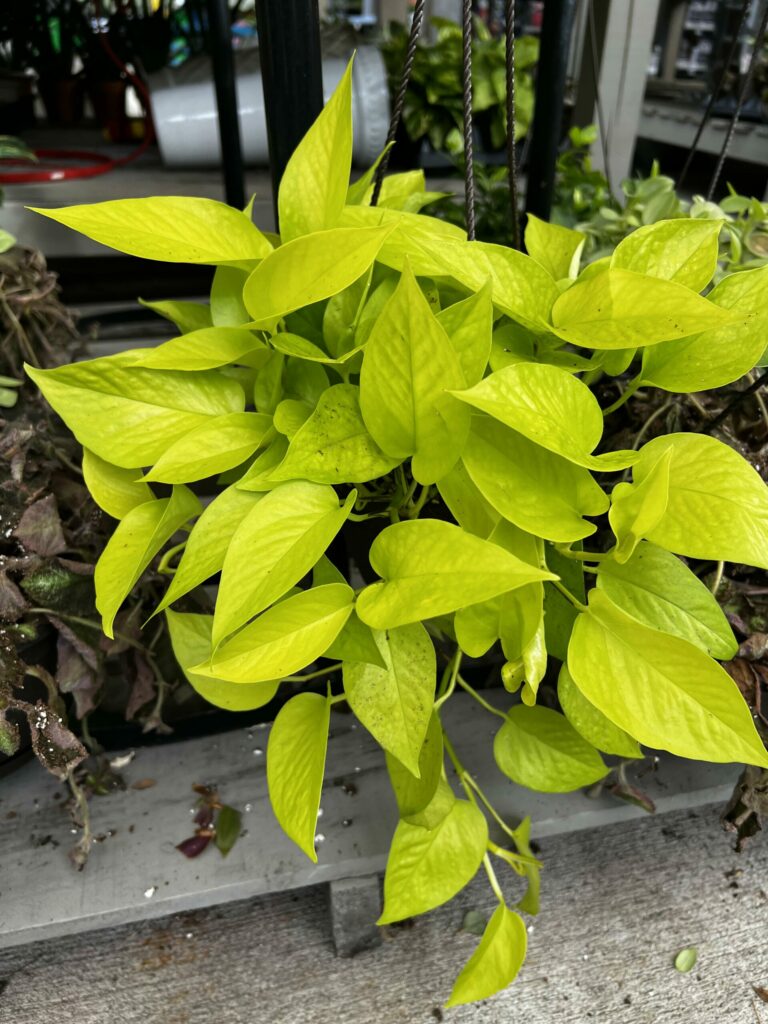
Soil
A well-draining potting mix is essential for pothos. A mix designed for houseplants, or a blend of peat moss, perlite, and vermiculite, works well.
Fertilizing
Feed your pothos with a balanced liquid fertilizer every 4-6 weeks during the growing season.
Reduce feeding in the fall and winter when growth slows.
Pruning and Maintenance
Prune your pothos to control its size and encourage bushier growth. Trim back leggy vines, and remove any yellow or damaged leaves.
Pothos can also be trained to climb a support or trellis for a different look.
Propagation
Pothos are easy to propagate through stem cuttings. Cut a healthy vine below a node (where a leaf attaches to the stem), place the cutting in water or moist soil, and roots will develop within a few weeks.
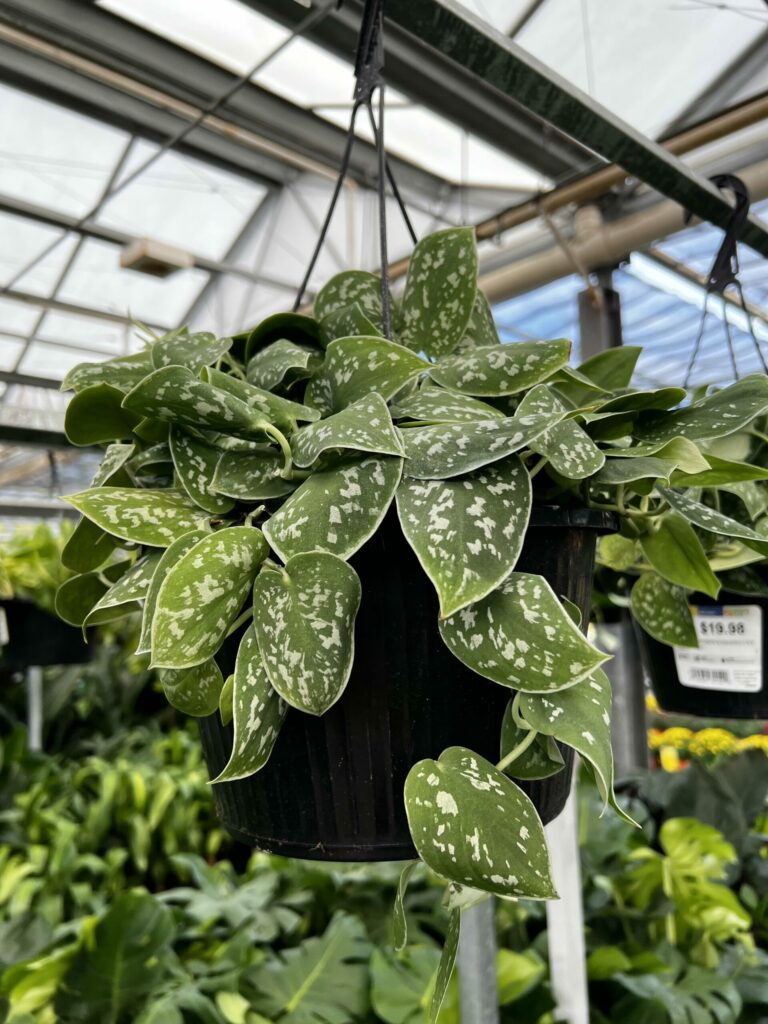
Pest and Disease Management
Pothos are generally pest-resistant, but they can occasionally attract spider mites, mealybugs, or scale.
Treat infestations with insecticidal soap or neem oil. Ensure proper watering and drainage to prevent root rot and fungal issues.
Toxicity
Pothos are toxic to pets and humans if ingested, causing symptoms such as mouth irritation, vomiting, and difficulty swallowing.
Keep them out of reach of curious pets and children.
By following this care guide, your pothos will thrive and add a touch of greenery to your home. Enjoy the beauty and ease of this versatile houseplant!
Pothos Plant Type Care Guides
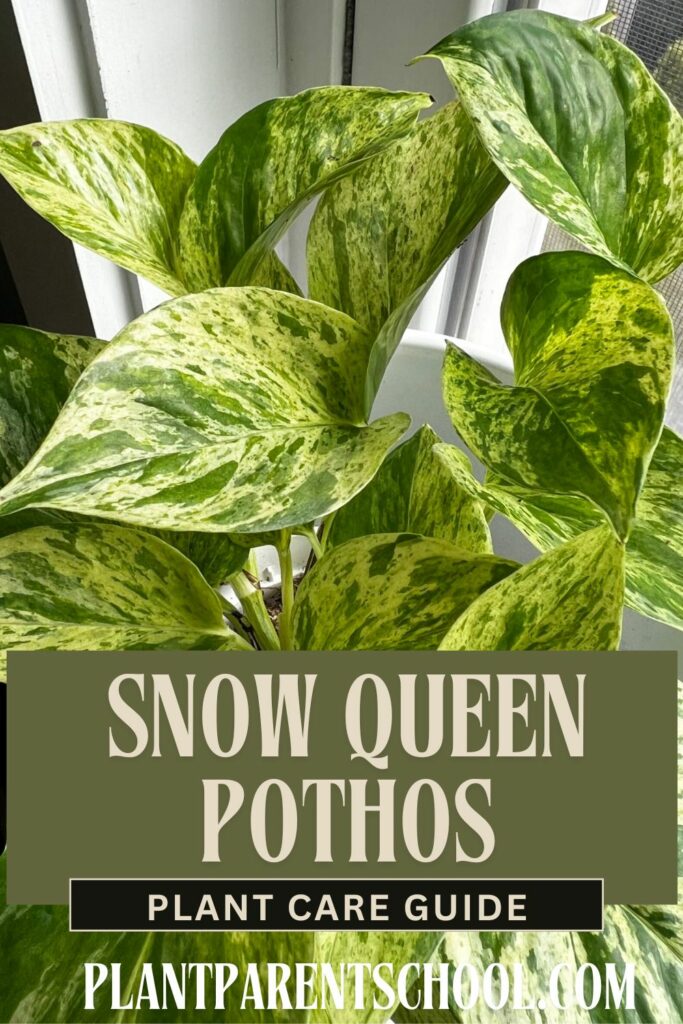
Want to Build Your Plant Care Confidence?
If you're ready to take your plant parenting to the next level, join Plant Parent School! This self-paced course will teach you everything you need to know about watering, lighting, troubleshooting, and more—so you can enjoy thriving houseplants with ease. Click here to enroll today!


